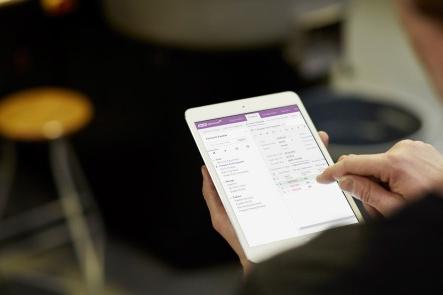Published on the 03/11/2016 | Written by MYOB

So you’ve been in business for a while and, besides the usual start-up challenges, things have been running fairly smoothly…
Your business systems have developed organically – you’re building a marketing database, you’ve got a functioning HR and payroll system in place, and your pricing information is maintained in a few spreadsheets.
A bright spark in your team has noticed that if you link your sales processes to your customer relationship management, you’ll save valuable hours each month – not to mention give your customers a much more streamlined experience. Closer observation tells you that integrating a few other databases and spreadsheets will create other efficiencies.
What now? How can you slot it all together into an integrated business management system?
Enterprise Resource Planning
ERP stands for ‘Enterprise Resource Planning’. An enterprise resource planning system is just another term for business management system. An ERP system can involve a number of different functions, but it’s basically business management software that’s designed to integrate and streamline your business’s main activities to make them more time- and resource-efficient.
Businesses use ERP systems to collect, store, manage and understand information from all their internal processes. An ERP system can manage HR, inventory, sales and other functions, as well as giving business owners an overview of the entire business – often in real-time – from a customised dashboard. Each part of the business has access to up-to-date and relevant information at all times.
An ERP system gives businesses the ability to streamline all their workflows – with the flexibility to grow as the business expands.
What types of ERP systems are there?
Cloud-based or online ERP solutions are accessed via the internet and are paid for on a subscription basis. The software itself isn’t owned or licensed by the end user but is provided as a service – which is why online solutions are also known as Software as a Service (SaaS) solutions.
Online technology is a good solution for many businesses because it offers enterprise-level software at an affordable monthly price – as well as the flexibility to easily scale up and down. MYOB Advanced is a good example of an online ERP solution.
On-premise solutions, such as MYOB EXO, are ERP systems that are installed on a server that is physically located on the business premises. Usually, the license for an on-premise system is sold on a perpetual basis and is treated as a capital expense.
Who can benefit from an ERP solution?
Once reserved exclusively for big business, an ERP solution is now a mainstream option for any sized business.
Even small- to medium-sized businesses can have a number of business functions to stay on top of. Mega Music, a music store in Perth, found that once they were juggling a point-of-sale system with their accounting functions – as well as the challenge of stock management and transfer across three sites – they needed a more powerful system to stay in control of their business.
Mega Music now uses MYOB EXO, with a customised fit developed and installed to suit their unique business requirements. The business now has a back-end system that interfaces with its POS system – which makes Mega Music better able to understand its customers’ needs thanks to customised reporting.
Read more about Mega Music’s ERP system.
It’s not easy running a business, especially one with a number of different functions. An ERP system can help business owners streamline and integrate every aspect of the operation, from sales to HR, and make faster and better informed decisions.



























